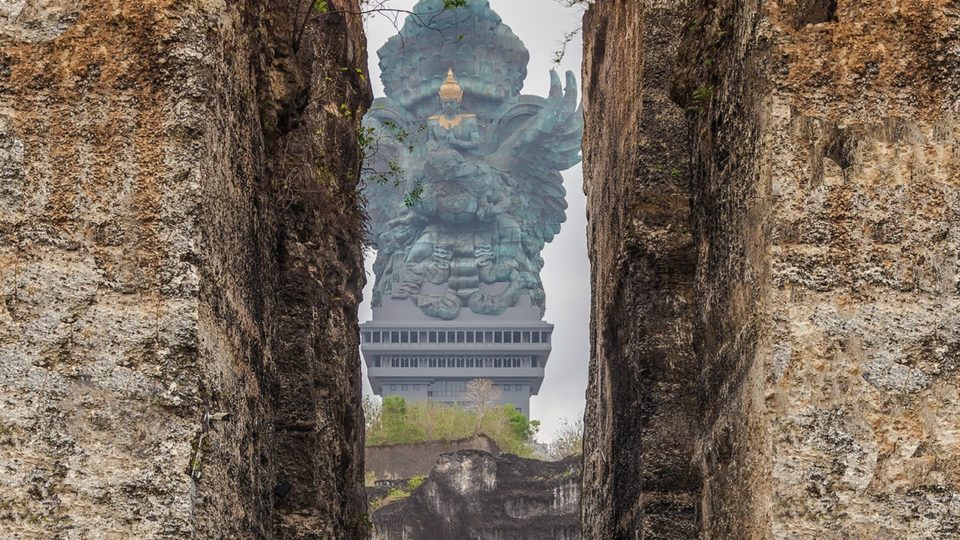Bali’s governor has been shutting down criticism about the annual World Bank-IMF meetings taking place in Nusa Dua right now.
Presidential challenger Prabowo Subianto and his campaign have harshly criticized incumbent Joko Widodo over the meetings in Bali this week, arguing that it’s inappropriate to waste so such money holding a “luxurious” international conference when those funds could be spent on earthquake-tsunami survivors in Sulawesi instead.
But Bali’s new governor Wayan Koster has taken Jokowi’s side on this one, explaining that the conference has long term benefits for the island and that the event is actually coming in under budget. Not to mention that the meeting has been set to take place in Bali since 2015, so it’s been years in development.
“It doesn’t matter whether people think that it’s a waste of the state’s money or not, the budget is set at more than IDR 800 billion (US$52.46 million), but what is being used, according to the Coordinating Minister for Maritime Affairs, Mr. Luhut, is around IDR 500 billion (US$32.79 million), so it is very economical, it has not been used up, going towards expanding the airport apron and Suwung landfill,” Koster said on Tuesday, as quoted by Detik.
Koster’s comments echo remarks made by President Jokowi on Monday, explaining that cash gone towards developing infrastructure like the airport apron and Ngurah Rai underpass in Bali ahead of the conference will benefit the island long beyond the scope of the meeting.
“The budget has been used to expand the apron at Bali’s airport, make a tunnel at an intersection in Bali, so it won’t jam. This means that after this, well continue to benefit from it. The tunnel will be used continuously, as will the airport apron,” President Jokowi said on Monday.
Moreover, it’s not like the Indonesian government is funding every aspect of the conference—delegates have self-financed their accommodation, says Koster.
“They’ve organized it themselves, the transport themselves, eating on their own, there is nothing financed by the committee, by the state budget,” he explained.
Estimates have been all over the place, but the latest put the amount of delegates flooding into Bali for the conference at more than 30,000. Bali’s luxurious ITDC area has reportedly been booked up for incoming delegates.
Koster said it’s not fair to link the IMF-World Bank meeting to the ongoing disaster in Palu-Donggala, Central Sulawesi. The budget for disaster response and management is separate, says the governor.
“If a disaster happens, the disaster already has its own allocation. I, every year, at the House of Representatives, allocate a special budget for disaster and post-disaster management. So it’s its own program, it should not be mixed up,” he said.
“The president has also been there often, the community has also contributed to help the program for Palu, later we will also go there, this is what we do in parallel. This is the leadership of the president who can manage this country in all aspects,” said Koster.
If anything, the timing of the conference proves helpful towards earthquake-disaster victims in Indonesia. The country’s Finance Minister Sri Mulyani Indrawati is using the annual meetings as a platform to discuss disaster funding and says she’ll be pushing for discussion amongst natural disaster-prone countries on how to better prepare themselves for the worst. With all eyes on Indonesia at the moment, the IMF on Monday pledged IDR 2 billion (US$131,210) to disaster relief efforts in Lombok and Palu.
The big irony the demo movement against the IMF-World Bank meetings is that the demonstrators who insist that the community is not benefiting from the meetings, are not Balinese, says Koster.
“So we are not disturbed, we are committed to a successful, smooth program. Those who speak like that are not Balinese. The Balinese people realize life from tourism, Balinese people are very friendly especially respectable towards guests, Balinese people according to their culture are polite, friendly, the demonstrations are not aspirations that portray the real Balinese, “he said.




